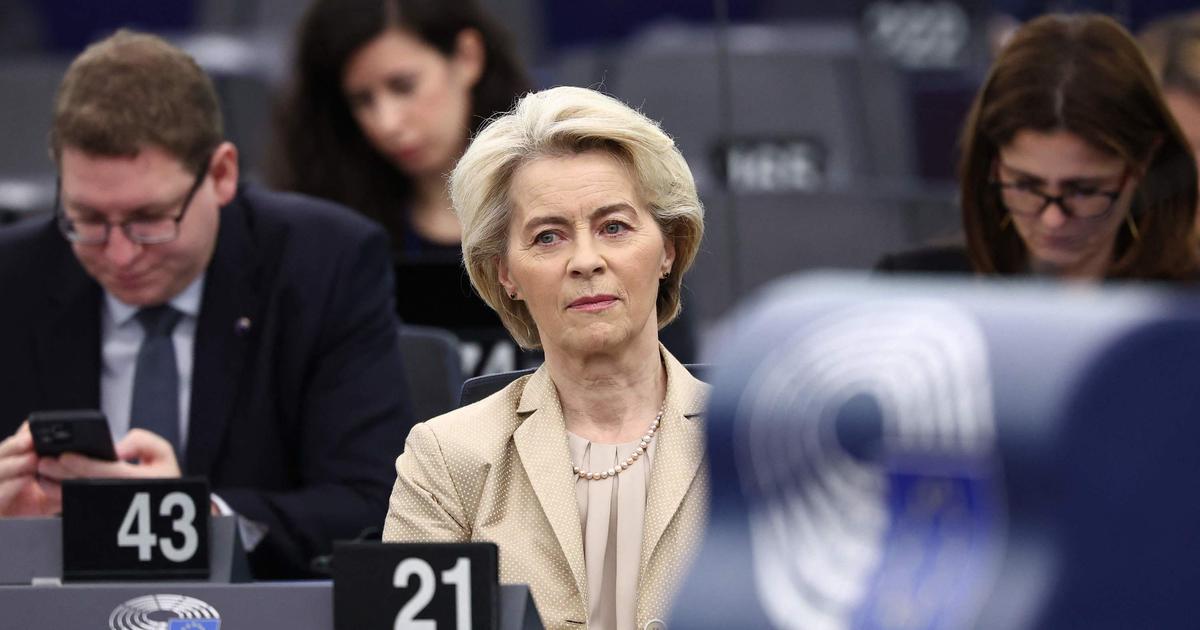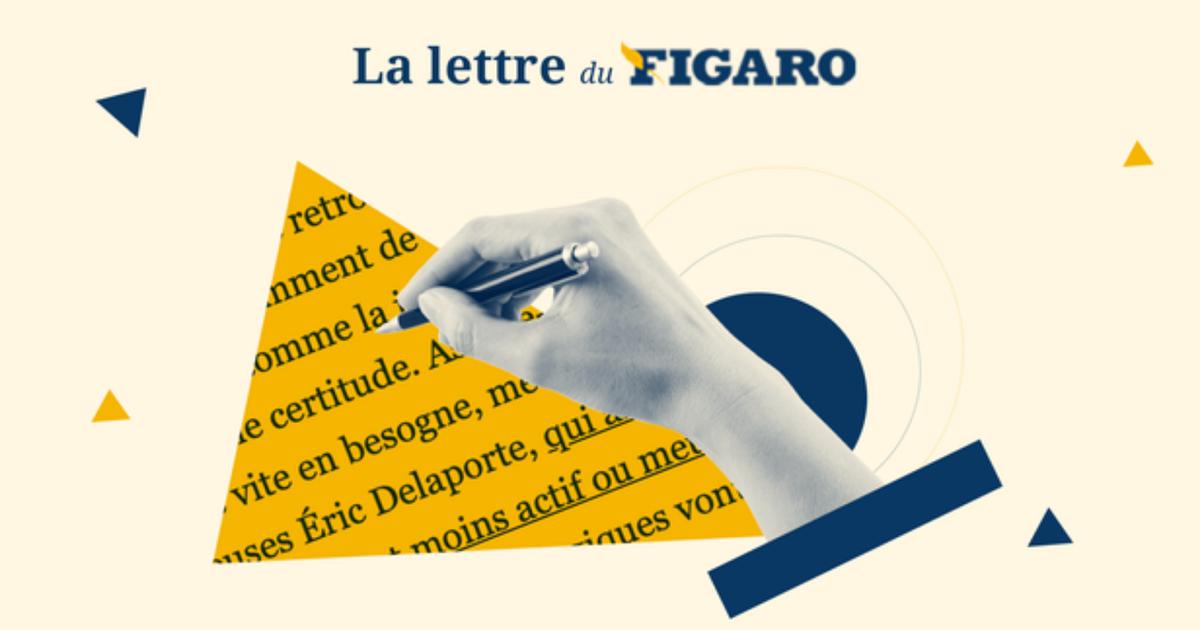Von der Leyen: Be prepared for the worst case
Created: 07/25/2022, 05:48 am
EU Commission President Ursula von der Leyen speaks in the European Parliament.
© Philipp von Ditfurth/dpa
Gas consumption in the EU is to be reduced in order to relieve Kremlin chief Vladimir Putin of some of his pressure potential.
Shortly before an important ministerial meeting, the head of the EU Commission calls for solidarity.
Brussels - Should the EU expect a complete stop to gas supplies from Russia?
The EU Commission answers this question with a resounding yes and presented an emergency plan last week just in case.
In an interview with the German Press Agency, President Ursula von der Leyen explains why she thinks saving on gas is already important and appeals to EU states that are critical of their proposals.
The CDU politician Ursula von der Leyen (63) has been President of the European Commission since December 1, 2019.
Before that, she was Federal Minister for a long time, most recently for Defense.
The CDU politician
Question: When you presented the emergency plan on Wednesday, you said that you think it is likely that Russia will completely cut off gas supplies to the EU. Is that still your assumption after Nord Stream 1 has resumed deliveries?
Answer: Our package is precisely about making us independent of such decisions by the Kremlin.
After all, it is obvious that the Kremlin is not a reliable partner for Europe's energy supply.
Gazprom has deliberately kept its storage levels low.
In the meantime, Russia only supplies gas in part or not at all in twelve member states.
That is why Europe must be prepared for the worst case scenario: a complete halt to gas supplies, sooner or later.
In order to cushion the consequences of this, we have to save 15 percent of our gas consumption by March next year.
That's 45 billion cubic meters of gas.
And we should start right away, because the faster we act, the more we save - and the safer we are.
Our overriding goal remains to become completely independent of Russian gas imports in Europe by 2027 at the latest.
With the help of REPowerEU, we want to invest 300 billion euros, for example to save gas and accelerate the switch to renewables.
At the same time, we are making new agreements with more reliable partners such as the USA and Norway.
Question: The rapid increase in gas and electricity prices affects not only companies but also low-income households and families. Are you in favor of introducing a price cap for gas? And if not, what do you think could be done at European level to prevent energy poverty?
also read
Energy price flat rate: How pensioners get the 300 euros
Gas crisis: After Uniper's decision - Spahn railed against Scholz
Answer: Leaders have asked the Commission to consider a price cap on imported gas.
We are currently doing that.
At the same time, we are well aware of the difficulties faced by lower-income households.
That's why, back in October - long before Putin's war - we presented a whole tableau of ideas that the member states could use to counteract price increases.
And the vast majority of EU members make use of it.
They lower taxes on electricity and energy, they subsidize low-income households, they provide incentives for the energy-efficient renovation of old buildings, they help companies that are particularly affected by the increase in electricity prices.
At European level, for example, we have temporarily adapted our state aid rules to provide support.
As part of REPowerEU, we set up an energy platform to buy gas together and negotiate good prices for consumers in Europe.
And as part of our European Green Deal, we are already working to ensure that all Europeans benefit from the transition to a climate-friendly future.
A social climate fund worth many billions of euros is intended to help low-income households, for example, to buy more environmentally friendly cars or to switch to more economical heating systems.
Question: To be asked personally: Do you like the idea of letting German nuclear power plants run longer so that in an emergency you can do without electricity from gas-fired power plants?
Answer: Each EU member has to answer this question for itself.
The energy mix is the responsibility of the EU member states.
However, like you, I have also noticed that many EU members assume that nuclear power will be used as a bridging technology.
For me personally, the first priority is that we invest as much as possible in renewables in Europe, because that is the future.
Question: Hungary recently announced that it would ban the export of natural gas, making it clear that it would not participate in a European solidarity mechanism in the event of a crisis. Can Prime Minister Viktor Orbán be forced to do it after all? And how do you explain to people in Spain, for example, that they should save gas because Germany has become dependent on Russia despite warnings?
Answer: It is true that some Member States are more affected by a disruption in Russian gas supplies than others.
But even member states that hardly purchase Russian gas cannot escape the consequences of a possible supply freeze in our internal market.
The EU internal market is at the heart of our economy, our economies are closely intertwined.
A gas crisis would therefore affect every single Member State in one form or another.
It is therefore important that all member states curb demand, that all save more and share with those members who are more affected.
Energy solidarity is a fundamental principle of our European treaties.
Our existing regulation on security of gas supply therefore already provides that Member States can count on each other.
The emergency instrument that we proposed on Wednesday complements this regulation and is now going through the usual legislative process.
I am sure that the energy ministers meeting on Tuesday are aware of their responsibilities.
We want to create a safety net for everyone so that we can make it safely through the next two winters, all 27 Member States together.
Question: Ms. von der Leyen, in view of an impending gas emergency, you are calling for energy to be saved as much as possible. Can you tell us how the Commission is making savings? Does the air conditioning stay off these days despite the heat?
Answer: Depending on the savings potential, we will adjust the temperature, for example, and optimize the operating time of heating, air conditioning and lighting.
We can all do something to reduce dependence on Russian gas.
Of course, the public sector should lead by example.
We do that in the European Commission. Our goal is to be climate-neutral as an authority by 2030.
We should never forget the larger context here.
Putin is waging an unjustified, brutal war on the Ukrainians.
We should do everything we can to cut off his money supply.
dpa




/cloudfront-eu-central-1.images.arcpublishing.com/prisa/RC4B72FDDQXT46YR3YBE2AOT4A.jpg)



